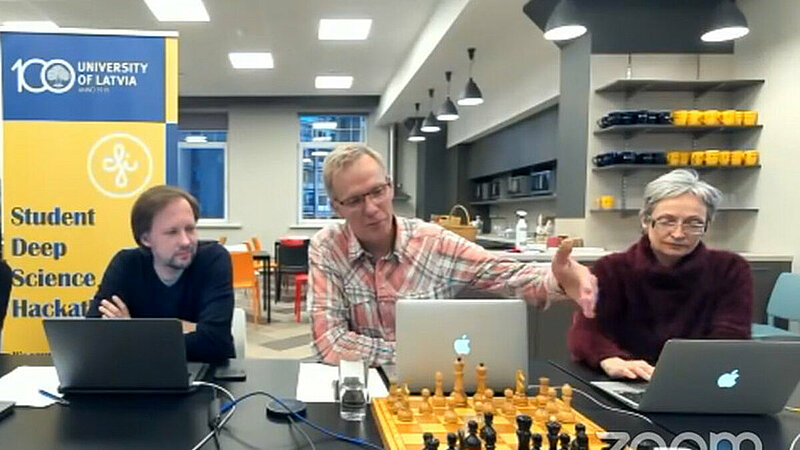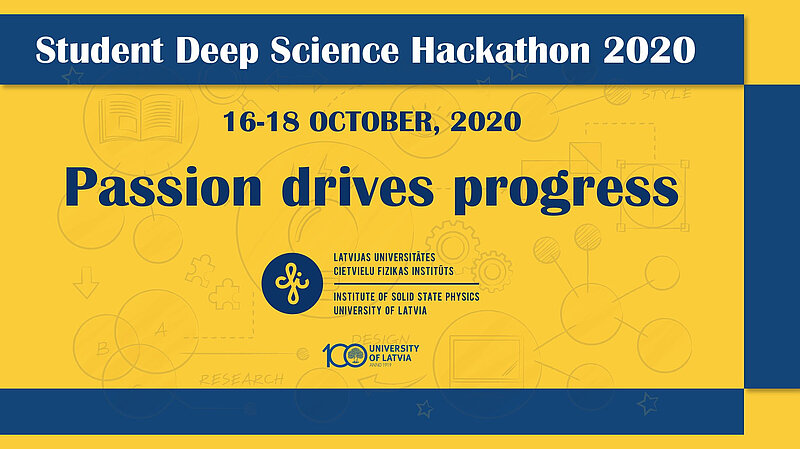Deep Science Hackathon 2020 is over
The Institute of Solid State Physics of the University of Latvia allows students to be creative at least twice a year by organizing a hackathon. This fall it happened online. Seven student teams were formed.
The Student Deep Science Hackathon brought together students from a variety of university programs, allowing them to form interdisciplinary teams. Under the guidance of mentors, they developed innovative ideas related to STEM or four scientific disciplines - science, technology, engineering and mathematics. Students' performance was evaluated by an experienced jury.
Three of the most interesting ideas: a pillow that adjusts the surface temperature to make it comfortable for the sleeper; a conceptual solution to the problem of how to wake up in the morning and how to deal with a seemingly simple but at the same time very disturbing phenomenon - a hangover.
We invite you to apply and develop ideas in the “Student Deep Science Hackathon” organized by ISSP UL
On October 16-18, 2020, the Institute of Solid State Physics of the University of Latvia will organize the second hackathon “Student Deep Science hackathon”, this time online, to give students the opportunity to develop their ideas and meet new team members.
The event will be a workshop for the creation and development of new innovative ideas in a virtual environment for students who want to form interdisciplinary teams with innovation potential. We are looking for interesting ideas in the fields of STEM (science, technology, engineering, mathematics).
During the 3 days, participants will form interdisciplinary teams with previously submitted ideas, develop them together with mentors and at the end of the event will present the commercialization plan to the jury, scientists, investors and interested parties. During the event, participants will be provided with mentor support, co-working environment and information for commercialization steps. It will be presented in the form of webinars, which will also be available to those who do not participate in the event with their ideas.
Those interested without an idea are also invited to apply! Everyone will have the opportunity to join one of the teams with their competence (physics, materials science, chemistry, business development, design, engineering, programming, marketing, etc.).
More information about the event:
Participation in the event is free.
The student hackathon is organized by the Institute of Solid State Physics of the University of Latvia together with the University of Latvia. The Student Deep Science Hackathon is supported by ERDF co-financed project no. 1.1.1.3/18/A/007 "Innovation Grants of the University of Latvia for Students".

